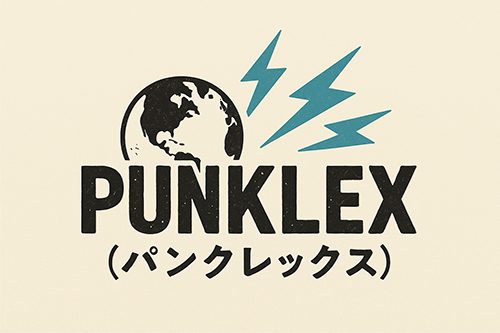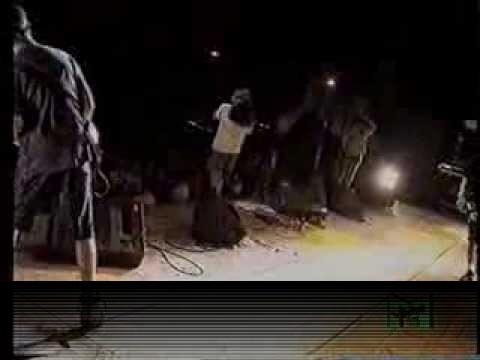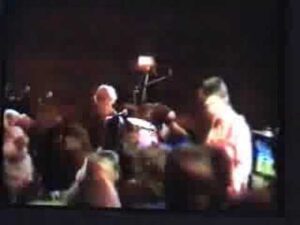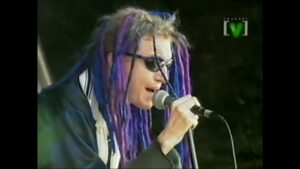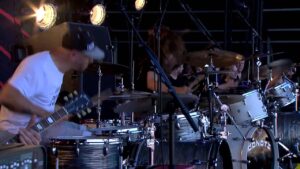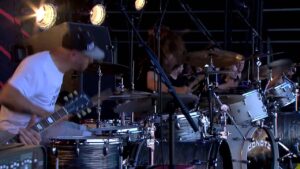Formation & Members
Negazione, often stylized as ネガティブ, was a seminal punk/hardcore band that emerged from the vibrant underground music scene of Turin, Italy, in 1983. The band was formed by four young enthusiasts of the burgeoning hardcore punk movement: Roberto “Tax” Farano on guitar, Marco Mathieu on bass, Guido Sassola aka “Zazzo” on vocals, and Fabrizio Fiegl aka “Brix” on drums. With a shared passion for intense and fast-paced music, they quickly carved out a niche in the European punk landscape.
Throughout their career, Negazione experienced several lineup changes, most notably in their drumming department, with Fabrizio being replaced by Orlando Furioso and later by other drummers. Despite these changes, the core trio of Tax, Zazzo, and Marco remained intact, driving the band’s artistic direction and maintaining its potent energy.
Musical Style & Characteristics
Negazione’s music was characterized by its raw energy, rapid tempos, and aggressive guitar riffs. They drew inspiration from both American hardcore bands like Black Flag and Minor Threat and British punk pioneers such as The Clash and The Damned. Their sound was a combustive mix of punk rock’s unrefined edge and the relentless speed of hardcore, creating a visceral and cathartic listening experience.
What set Negazione apart was their ability to blend this aggression with melodic elements, often incorporating intricate guitar work and compelling lyrical themes. Their lyrics, sung primarily in Italian, tackled issues such as alienation, societal unrest, and personal introspection, resonating with a diverse audience across Europe and beyond.
Key Works & Discography
Negazione’s discography is a testament to their evolution and impact. Their first official release, the 1984 EP Mucchio Selvaggio, set the stage for their groundbreaking sound. It was followed by their debut full-length album, Lo Spirito Continua (1986), which solidified their reputation as forerunners of the hardcore punk scene in Italy.
The band’s subsequent albums, including Little Dreamer (1988) and 100% (1990), saw them expanding their musical boundaries by experimenting with different genres and production techniques. Little Dreamer featured tracks that were both sonically fierce and lyrically poignant, while 100% continued to showcase their dynamic range and commitment to musical innovation.
Negazione also released several compilations and live albums, capturing the raw energy and intensity of their performances. Their ability to convey such palpable emotion and drive through their recordings has ensured their music remains influential long after their disbandment.
Influence on Other Bands/Scenes
Negazione’s influence extends beyond their native Italy, impacting the broader European punk and hardcore scenes. Their relentless touring across the continent, including notable performances in Germany, France, and Scandinavia, helped to spread their music and message, inspiring countless bands to emerge in their wake.
They were instrumental in the development of a cohesive European hardcore network, fostering connections between disparate scenes and encouraging collaboration. Bands such as Raw Power, Wretched, and Kina cite Negazione as a significant influence, and their legacy can be seen in the thriving Italian punk scene of today.
Breakups or Reunions
Despite their success and influence, Negazione faced numerous challenges that eventually led to their breakup. In 1992, after nearly a decade of pushing the boundaries of punk and hardcore, the band decided to part ways. The split was amicable, attributed to the natural progression of their personal lives and the desire to explore new creative directions.
Over the years, there have been sporadic calls from fans for a reunion, but the band members have remained firm in their decision to leave Negazione in the past. They have instead pursued individual projects, with Tax continuing to play music, Marco engaging in journalism, and Zazzo exploring other creative avenues.
Current Reputation & Legacy
Today, Negazione is remembered as a pioneering force in the punk and hardcore scenes, both in Italy and internationally. Their music continues to resonate with new generations of listeners, and their records are often sought after by collectors and aficionados of the genre.
Their ability to fuse relentless energy with introspective and socially conscious lyrics set a standard for future bands, and their DIY ethic and relentless touring schedule remain a blueprint for success in the underground music scene. Negazione’s influence is evident in the continued vitality of punk and hardcore, as bands around the world draw inspiration from their uncompromising approach and musical legacy.
Conclusion
Negazione, or ネガティブ, may no longer be an active band, but their impact and contributions to punk and hardcore music endure. Through their groundbreaking music, relentless touring, and commitment to their ideals, they carved out a unique place in music history. Their legacy is one of innovation, passion, and a testament to the enduring power of punk rock to challenge and inspire. As new generations discover their music, Negazione’s spirit continues to thrive, a lasting reminder of what punk can achieve when it stays true to its roots.
